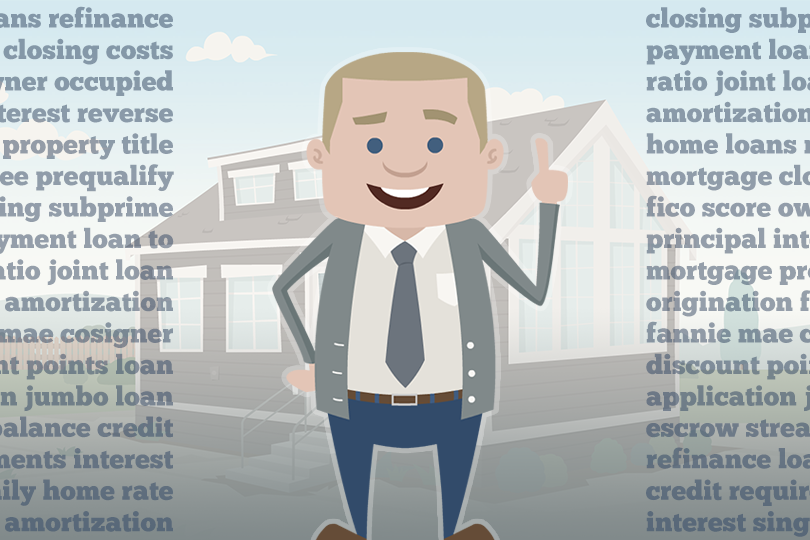Your Questions Answered About FHA Loans and Student Debt
February 13, 2025
Q: How does student loan debt affect my mortgage chances?
A: Student loan debt affects your ability to qualify for an FHA mortgage, primarily because of how it changes your debt-to-income ratio (DTI). Lenders calculate your DTI by dividing your total monthly debt payments (including student loans, credit cards, car loans, and the potential mortgage) by your gross monthly income.
A high DTI, often above 43% for most mortgages, can hinder your ability to secure a loan or lead to less favorable terms. Essentially, the more your income goes toward debt repayment, the less likely lenders approve a new loan.
Q: What is the debt-to-income ratio (DTI), and why is it important?
A: The debt-to-income ratio (DTI) is a metric lenders use to measure your creditworthiness. It indicates how much of your monthly income is already committed to debt payments. Lenders prefer lower DTIs because there is more disposable income and less chance you may default on a loan. Student loan payments directly increase your DTI, making it a critical factor in mortgage approvals.
Q: How do lenders view borrowers with substantial student loan debt?
A: Even if your DTI is technically within acceptable limits, a large student loan burden can still raise concerns for lenders. They may view borrowers with significant student debt as higher risk, even if they're currently managing their payments. This is because of the amount of income already allocated to debt repayment leaves less buffer for unexpected expenses or financial hardships.
Q: Can I still get a mortgage if I have a lot of student loan debt?
A: Yes, homeownership is possible even with student loans. While it can be more challenging, especially with substantial debt, it’s not insurmountable. Strategies like improving your credit score, lowering other debts, saving for a larger down payment, and exploring specific loan programs can improve your chances.
Q: Are there specific types of mortgages that are more accessible with student loan debt?
A: FHA loans, insured by the Federal Housing Administration, are often a good option for borrowers with student loan debt. FHA loans generally have more lenient credit score and DTI requirements than conventional loans, making them more accessible to those carrying student debt.
Q: How are student loan payments factored into FHA loan calculations?
A: FHA guidelines require lenders to use the monthly payment amount reported on your credit report or loan documentation, even if your loans are in forbearance.
This means that even if you're not actively making payments right now, the anticipated future payment will be included in your DTI calculation for the FHA loan.
Q: What steps can I take to improve my chances of getting an FHA loan with student debt?
A: Several steps can improve your chances:
- Calculate your DTI: Understand your current DTI, including your student loan payments, and estimate potential mortgage payments to see where you stand.
- Explore Income-Driven Repayment (IDR) plans: IDR plans can lower your monthly student loan payments, thus reducing your DTI. However, lenders will likely use the projected payment under the IDR plan, not your current payment.
- Improve your credit score: A good credit score is crucial for any mortgage. Check your credit report and address any errors.
- Save for a down payment: A larger down payment reduces the loan amount and improves your DTI.
- Reduce other debts: Paying down credit card balances or other loans can lower your overall DTI.
- Shop around for lenders: Different lenders may have varying DTI requirements for FHA loans.
- Communicate with your lender: Transparency about your student loan situation is key.
- Consider a co-borrower: A strong financial profile can strengthen your application.
- Seek financial counseling: A financial counselor can provide personalized guidance.
- Be patient and persistent: The home-buying process takes time and effort.

FHA Loan Articles
April 18, 2023Your lender is required to make sure you can realistically afford your mortgage, and that means verifying that your income is stable, reliable, and will continue after your mortgage has closed. What some don’t realize about this process is that there are standards for verifying income.
April 1, 2023FHA loan rules for single family purchase loans include guidelines for the lender to use if the applicant has rental income. Some want to know whether it is possible to qualify for an FHA mortgage using rental income. The real issue is whether the rental income meets FHA loan rules.
March 16, 2023Planning your FHA loan means asking some important questions early in the process. The most obvious question is associated with the type of home you want. How large a house do you need? FHA mortgages allow the purchase of homes with between one and four living units.
February 7, 2023There are tons of reasons why people decide that they’re done with renting and start looking into buying a home. Whatever your reason, deciding to buy a home is a big step, and one of the most daunting aspects is saving up enough money for the down payment.
January 27, 2023Before you get ready to commit to a home loan application, it’s good to review your circumstances and ask a few basic questions about your loan, your plans, and the home itself. Believe it or not, knowing what type of home loan you need is an important step.







